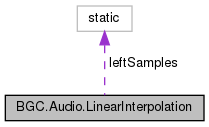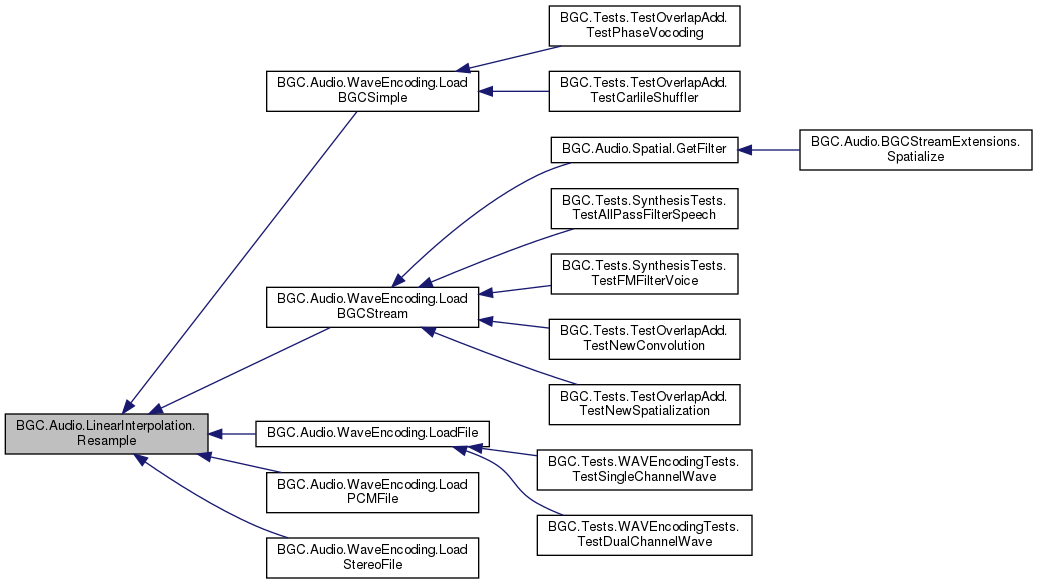Resampling methods More...
Collaboration diagram for BGC.Audio.LinearInterpolation:

Static Public Member Functions | |
| static float [] | FactorUpscaler (float[] samples, int factor, int channels) |
| static float [] | Resample (float[] samples, double oldSamplingRate, double newSamplingRate, int channels) |
| static short [] | Resample (short[] samples, double oldSamplingRate, double newSamplingRate, int channels) |
Static Public Attributes | |
| static float [] | leftSamples |
Static Private Member Functions | |
| static float [] float [] rightSamples | Resample ((float[] leftSamples, float[] rightSamples) samples, double oldSamplingRate, double newSamplingRate, int channels) |
Detailed Description
Resampling methods
Definition at line 8 of file LinearInterpolation.cs.
Member Function Documentation
◆ FactorUpscaler()
|
inlinestatic |
Definition at line 23 of file LinearInterpolation.cs.
Referenced by BGC.Tests.WAVEncodingTests.UpScalingTest().
Here is the caller graph for this function:

◆ Resample() [1/3]
|
inlinestaticprivate |
Definition at line 10 of file LinearInterpolation.cs.
Referenced by BGC.Audio.WaveEncoding.LoadBGCSimple(), BGC.Audio.WaveEncoding.LoadBGCStream(), BGC.Audio.WaveEncoding.LoadFile(), BGC.Audio.WaveEncoding.LoadPCMFile(), and BGC.Audio.WaveEncoding.LoadStereoFile().
static float [] float [] rightSamples Resample((float[] leftSamples, float[] rightSamples) samples, double oldSamplingRate, double newSamplingRate, int channels)
Definition: LinearInterpolation.cs:10
Here is the caller graph for this function:

◆ Resample() [2/3]
|
inlinestatic |
Definition at line 44 of file LinearInterpolation.cs.
◆ Resample() [3/3]
|
inlinestatic |
Definition at line 78 of file LinearInterpolation.cs.
Field Documentation
◆ leftSamples
|
static |
Definition at line 10 of file LinearInterpolation.cs.
The documentation for this class was generated from the following file:
- Audio/LinearInterpolation.cs
 1.8.13
1.8.13